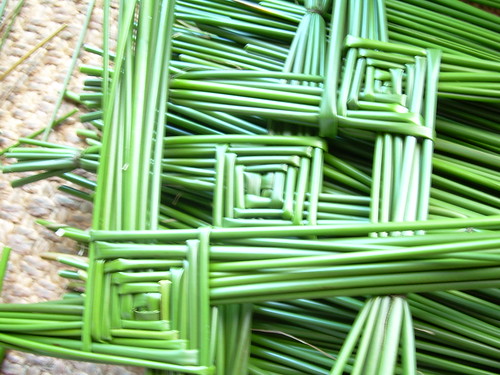Saw this this morning on the Weather Channel; Steph and Mike are on shaky ground, guys...
(Video made by my husband. Hooray for working iphones.)
Sci-Fi! Philadelphia! Celts! The Middle Ages! Surely they must go together somehow, right?
§7. Mercator included a legend to his great wall map of 1569 that referred to Arthur in the following way:
The article discusses whether this ultimately goes back to Geoffrey's Scandinavian conquest story, or whether it perhaps goes back to an even earlier tradition of a frozen Otherworld to the north. Of course, it's no surprise that anyone would connect a mythical conquest of the North with the Norwegian settlements of North America, and concoct a story of King Arthur doing the same, but earlier. And how irresistible the idea would be to an incipient British Empire.Touching the description of the North parts, I have taken the same out of the voyage of James Cnoyen of Hartzevan Buske, which allegeth certain conquests of Arthur king of Britaine, and the most part, and chiefest things among the rest he learned of a certain priest in the king of Norway's court, in the year 1364. This priest was descended (in the fifth generation) from them which King Arthur had sent to inhabit these Islands
Michael Fassbender and screenwriter Ronan Bennett are developing a feature film about the legendary Celtic warrior Cuchulain, with Fassbender set to play the leading role.
Cuchulain is the central character in the Ulster Cycle, an epic series of Old Irish legends that date from around the 8th century.
Set in the northern part of Ireland, the saga relates the story of the Ulaid tribe headed by King Conchobar, and particularly its conflict with the rival Connachta tribe led by Queen Mebh.
The most prominent figure in the legends is Conchobar's nephew Cuchulain, who has semi-divine ancestry and superhuman fighting skills. In the most famous story, known as the Cattle Raid of Cooley, he is the only man capable of resisting the vast army sent by Medb to steal Conchobar's prize white bull.
collate all of the tales, myths, legends, lore and more from the Gaelic countries – those of Ireland, Scotland, and the Isle of ManAlready she's covering stories I've never gotten to, and will be linking to from my own site.
 |
| Why yes, California *does* know how to party |
 |
| Weaving St. Brigit's Cross from JustWeaving |
While Imbolc is undoubtedly a feast of spring, and a feast celebrating Brigit, there is, I think, a third element to the feast which is sometimes overlooked—it is likely that Imbolc is a feast of purification, and perhaps represents a longer period of purification, analogous to several other Indo-European and even Christian festivals. Moreover, this feast of purification is intimately bound up with the holiday’s other meanings honoring spring and Brigit—that all three are important to understanding the origins of Imbolc.
...
The four main feasts of the Celtic calendar—commonly known by their Irish names Samhain, Imbolc, Beltane, and Lughnassadh—when their themes are examined, form a series of corresponding concepts. Samhain is a feast of winter, death, and the ancestors, while Beltane is a feast of summer, sexuality, and fertility.
If Hamp is right, and Imbolc is analogous to the February period of purification found in Roman and Christian tradition, then perhaps Imbolc, like Lughnassadh, was a period and not a single day. It is currently impossible to prove that the pre-Christian Irish observed Imbolc as such a period, but as we have seen, we have analogous ideas in neighboring cultures, and even a Gaulish month called “purification” which falls around the time of February